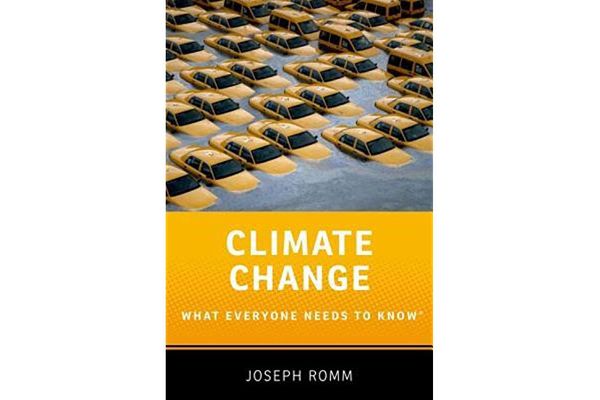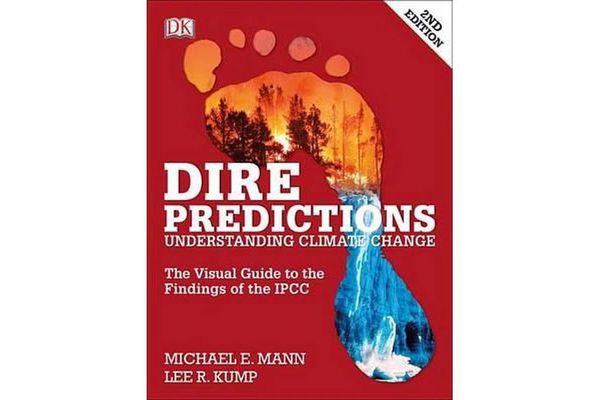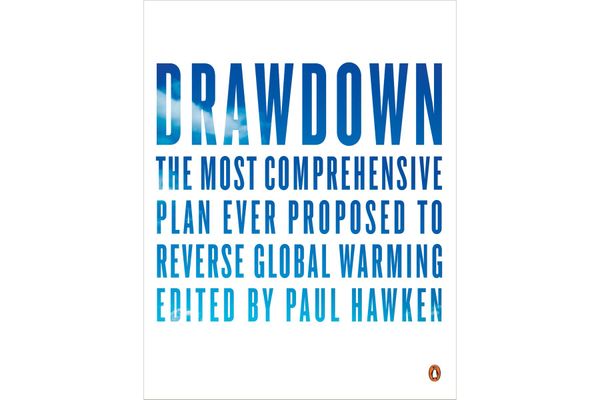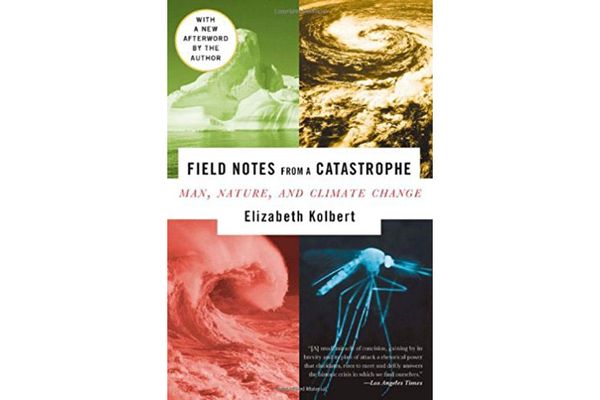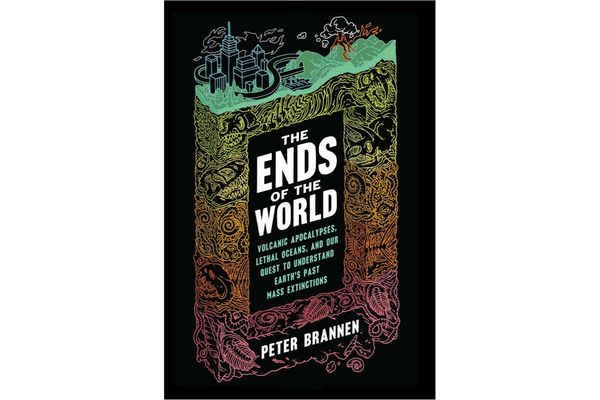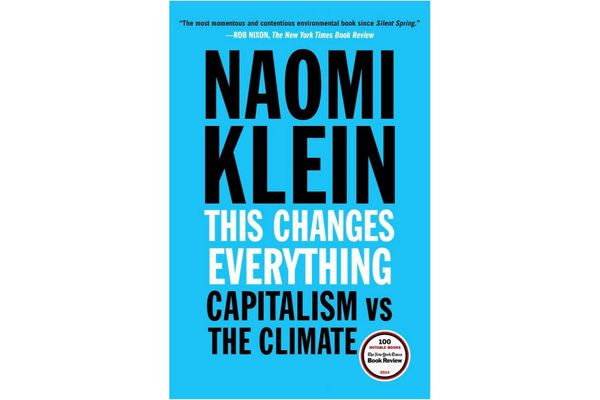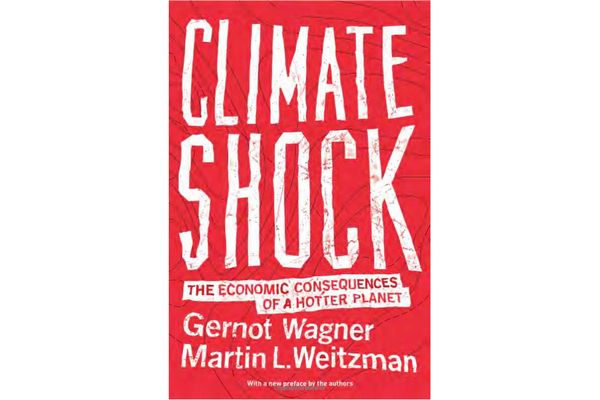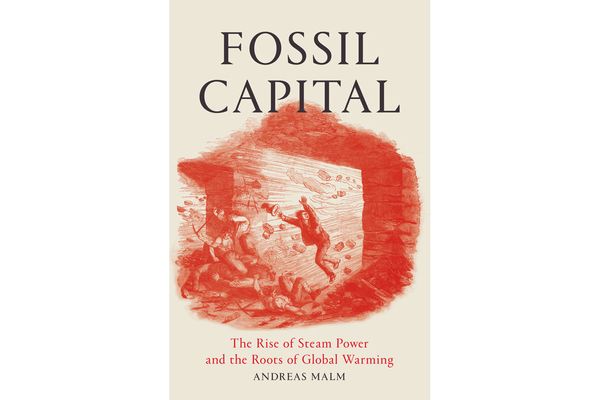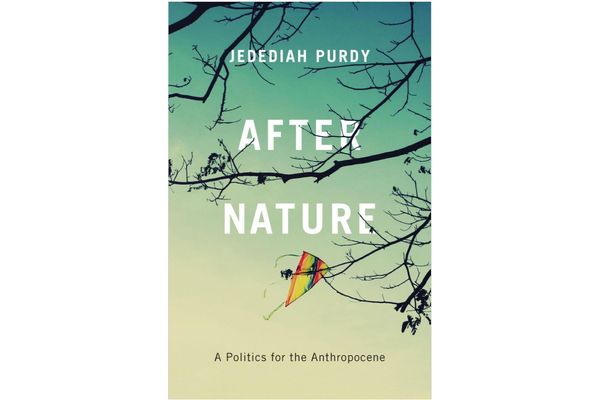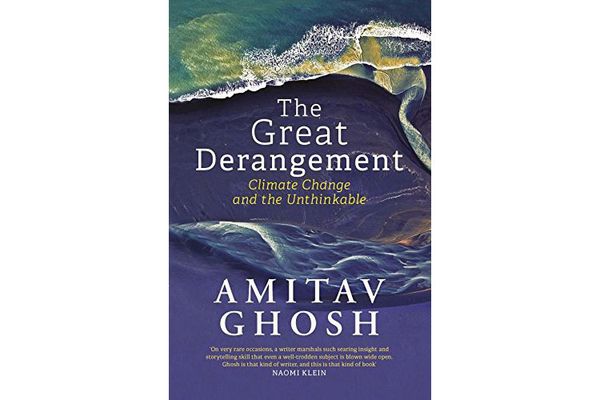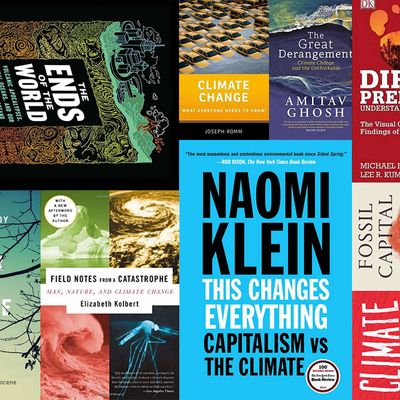
You may have read — as we did — David Wallace-Wells’s piece on climate change with a mixture of horror and fascination, and if you’re interested in further reading, the annotated version is chockablock with citations and links to additional articles and studies. If, however, you’re looking for some books on the subject, we asked our colleague to put together an extended list of titles he would recommend. Below, ten books for your “Uninhabitable Earth” reading list.
This is, for my money, the best single-source primer on the state of climate-change science — a wide-ranging survey organized into bite-size chapters that covers both the present tense of warming and what is possible down the road.
This is an immensely readable digest of the last report from the U.N.’s Intergovernmental Panel on Climate Change (it’s heavy on visuals and easy to follow, like an engaging middle-school science textbook).
For readers eager to read about possible solutions to the problem (and possibly a dose of optimism), this is an important walk-through of what can be done, from the large scale (solar farms) to the quite small (household recycling).
Alongside Bill McKibben, Elizabeth Kolbert is probably the leading journalistic chronicler of the way climate has changed, is changing, and will change our planet — and in addition to being informative, these books are full of exquisite writing.
For readers especially interested in geohistorical analogs to our present climate change, Peter Brannen’s new book is quite a sharp tour of the planet’s previous mass extinction (it’s also written in a magazine style and quite friendly to lay readers).
Anything Naomi Klein writes is essential reading, and this is the book in which she really fused her critique of industrial and postindustrial capitalism and her concern for the planet.
This landmark book is good on many aspects of climate change, but more importantly, it makes one very crucial point: We often think of “the economy” and “the environment” as being oppositional values, but in fact, that is very short-term thinking — cultivating healthy economic growth for future decades requires action on climate change now.
This is a denser, wonkier, and more historical survey of the long, ugly marriage between fossil fuels and capitalism — in fact, between fossil fuels and the entire history of economic growth.
Jedediah Purdy is another extremely sharp writer on climate and what it means for humans and the way we live — today and in the future.
Why can’t we imagine climate change in our novels (and other narrative entertainments)? Amitav Ghosh has a few very interesting ideas …
The Strategist is designed to surface the most useful, expert recommendations for things to buy across the vast e-commerce landscape. Some of our latest conquests include the best women’s jeans, rolling luggage, pillows for side sleepers, ultra-flattering pants, and bath towels. We update links when possible, but note that deals can expire and all prices are subject to change.
Every editorial product is independently selected. If you buy something through our links, New York may earn an affiliate commission.
